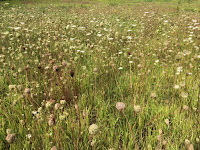I highly recommend that new writers take any writing workshops and classes that are available, affordable, and of interest to them. Writing is a craft, and very few people can learn it from just writing the same things over and over again without any thought of how the rest of the world reads and comprehends words on a page.
However, not all workshops/classes are going to be terrific.
A case in point is the workshop (in reality a talk) I took this past week. I thought the workshop leader was going to explain a method to help with drafting and revising. Instead, the workshop was about...Well, I would be hard put to say. This event makes my list of worst so-called workshops I've attended.
Another Great Benefit Of Zoom
However, it was a Zoom workshop. Thus:
- It was cheap.
- I didn't have to get dressed up or made up.
- I didn't have to drive hours to and from the workshop site.
- I didn't have to find a place for lunch or decide to go without, which is always an option.
- I hand-drafted part of this blog post while the workshop leader was talking about who knows what.
A really crappy workshop is nowhere near as big a loss when you're taking it over Zoom versus having to drive somewhere.
What Is A Writing Workshop, Anyway?
The word "work" in "workshop" suggests some kind of "work" is going to happen during it. You're going to do something during the workshop. However, in my experience many writing workshops are in reality talks or lectures. That doesn't mean you can't benefit from them, especially if you're just starting out. Personally, I'm a fan of a good lecture, especially if the lecturer knows how to use PowerPoint.
If you've been around the workshop/conference/retreat track a few times, though, you may get to the point that you've heard a lot and don't want to hear anymore. A member of my writing group once said she was tired of conferences, she wanted to write.
If you're interested in workshops that will do more than just tell you information, look for the word "generative" in the description. The workshop leader expects the workshop to generate work. Even workshop descriptions that suggest participants bring a project they're working on often end up being for workshops that involve very little work. I've had better experiences with workshops that are described as "generative."
Old Wine In A New Flask
Some writing workshops, as well as writing books, do not provide new ideas or techniques. They're the workshop leader's or book writer's personal application and name for techniques other people have used and written about and that are generally called something else. If you are a new writer and you haven't heard any of this before in any way, shape, or form, you may find this helpful.
If you have been writing and studying a while and have heard of this before in a different way and perhaps are even using it, you may find this old-wine-in-a-new-flask content confusing. You may end up sitting there searching for something new that just isn't there.
A Final Point
Sometimes you just have to suck it up, because you're in a lousy workshop and move on. I, myself, will be spending some time today continuing to watch a recording of a SCBWI workshop that is good. Okay, it's really a lecture, not a workshop, but so far it's been a good one.
Movin' on.









